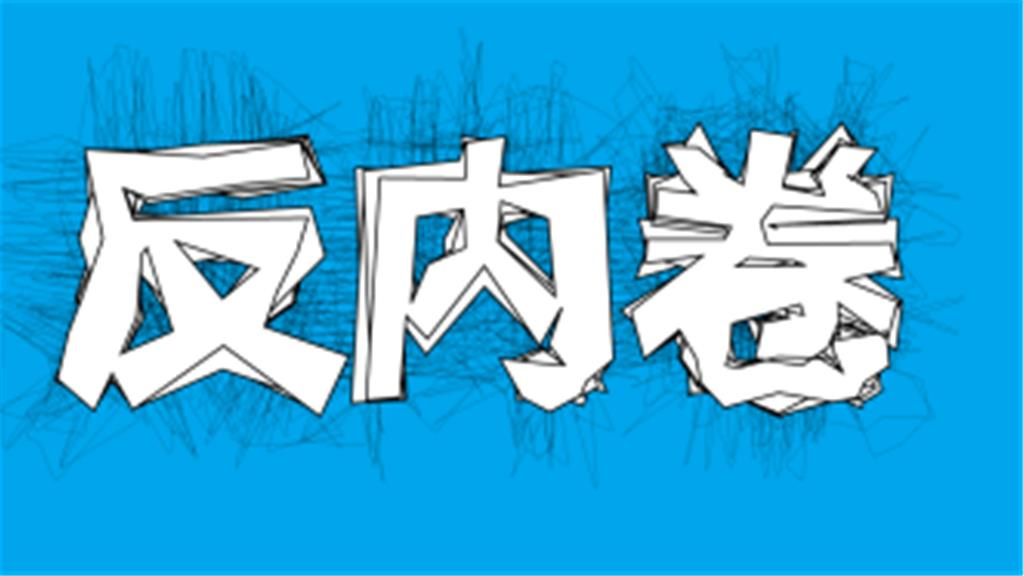"Anti-involution" — Phrase of the Week
Big brands finally start to curb overtime
Our phrase of the week is: "anti-involution" (反内卷 fǎn nèi juǎn).
Context
On March 10, home appliance giant Midea (美的) announced measures to curb overtime, requiring all employees to leave the office by 6:20pm.
The company says it’s building a healthier work culture by reducing hours, streamlining processes, and cutting unnecessary formalities.
Drone maker DJI (大疆) recently introduced a similar policy, banning employees from staying in the office past 9pm, and cutting overtime transport subsidies, to incentivise its workers against staying late.
White goods maker, Haier (海尔), has gone even further, enforcing mandatory two-day weekends and capping overtime at three hours per day—only with prior approval.
For decades, China’s tech and corporate sectors have been shaped by 996 culture—working 9am to 9pm, six days a week. In 2019, Jack Ma 马云, the founder of Alibaba, infamously described this a “blessing” (福报).
But in recent years, employees have begun to push back against burnout, by “lying flat” (躺平), “slacking off” (摸鱼), or “doing the bare minimum” (糊弄学) in the office.
A number of high profile incidents have highlighted the consequences of involution—like when over-worked baristas at coffee chain, MANNER, had violent clashes with customers last summer.
This is one reason why companies like Midea are finally responding:
"Midea has been actively promoting 'anti-involution,' by advocating for a healthy corporate culture and providing employees with a more diverse and fulfilling personal life."
美的一直在身体力行践行“反内卷”,倡导健康的企业文化,提供给员工更丰富多彩的业余生活。
Měidì yìzhí zài shēntǐ lìxíng jiànxíng ‘fǎn nèijuǎn’, chàngdǎo jiànkāng de qǐyè wénhuà, tígōng gěi yuángōng gèng fēngfù duōcǎi de yèyú shēnghuó.
And with that, we have our Sinica Phrase of the Week!
What it means
The term "involution" (内卷 nèijuǎn) is a popular modern slang term in China, which means intense or destructive competition. “Anti-involution” (反内卷 fǎn nèijuǎn) is a push back against that.
Involution was originally an anthropological concept introduced by American anthropologist Clifford Geertz in his 1963 work, Agricultural Involution, to describe how the intensification of labor in Indonesian wet-rice agriculture did not result in corresponding advancements in productivity.
In China, the concept was popularized by scholar Philip C. C. Huang in his 1985 book, The Peasant Economy and Social Change in North China, where he used "involution" to explain the persistence of labor-intensive farming practices despite limited economic gains.
The term gained widespread usage in mainstream society in China around 2020, especially among urban youth. It came to describe the relentless competition and overexertion at work and in education, which don’t lead to meaningful progress or rewards.
This modern usage—which we’ve previously translated as "destructive competition"—comes with feelings of exhaustion and entrapment, forced to work in an overly competitive environment.
This new term, "anti-involution" (反内卷), is a much needed push back against this destructive work culture—with Midea, DJI, and Haier taking the first steps in what could be a bigger trend taking shape.
Andrew Methven is the author of RealTime Mandarin, a resource which helps you bridge the gap to real-world fluency in Mandarin, stay informed about China, and communicate with confidence—all through weekly immersion in real news. Subscribe for free here.
Read more about how this story is being discussed in the Chinese media in this week’s RealTime Mandarin.






